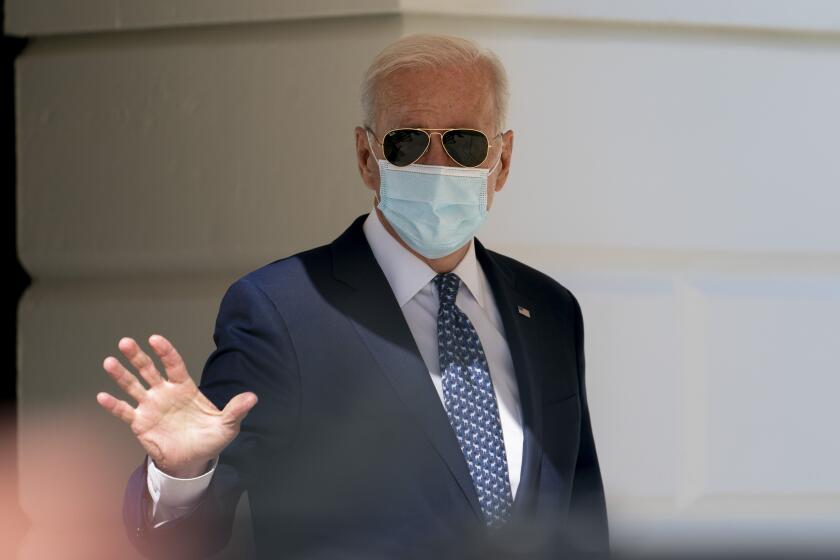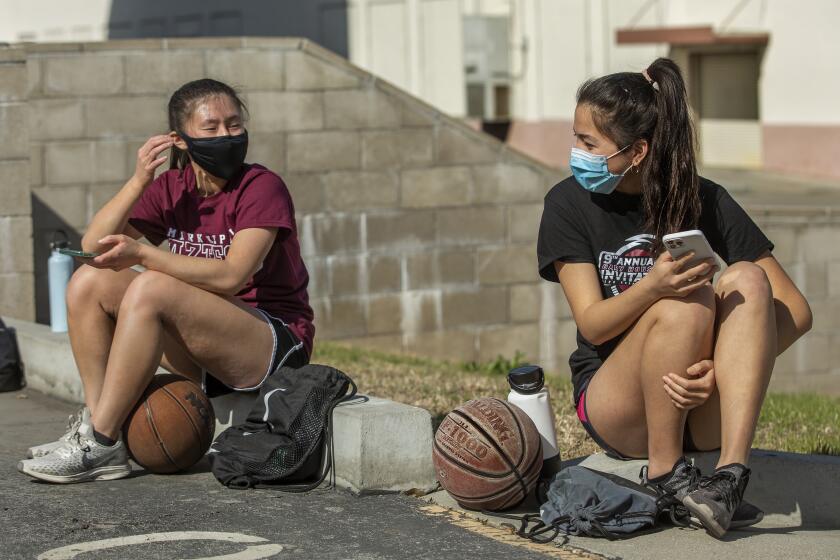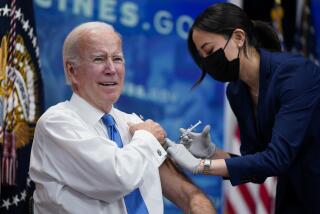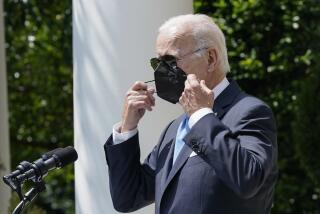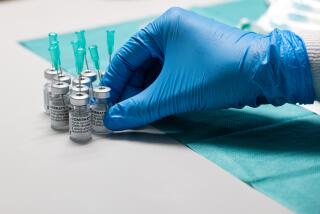U.S. pledges to double vaccine donations to boost global inoculation
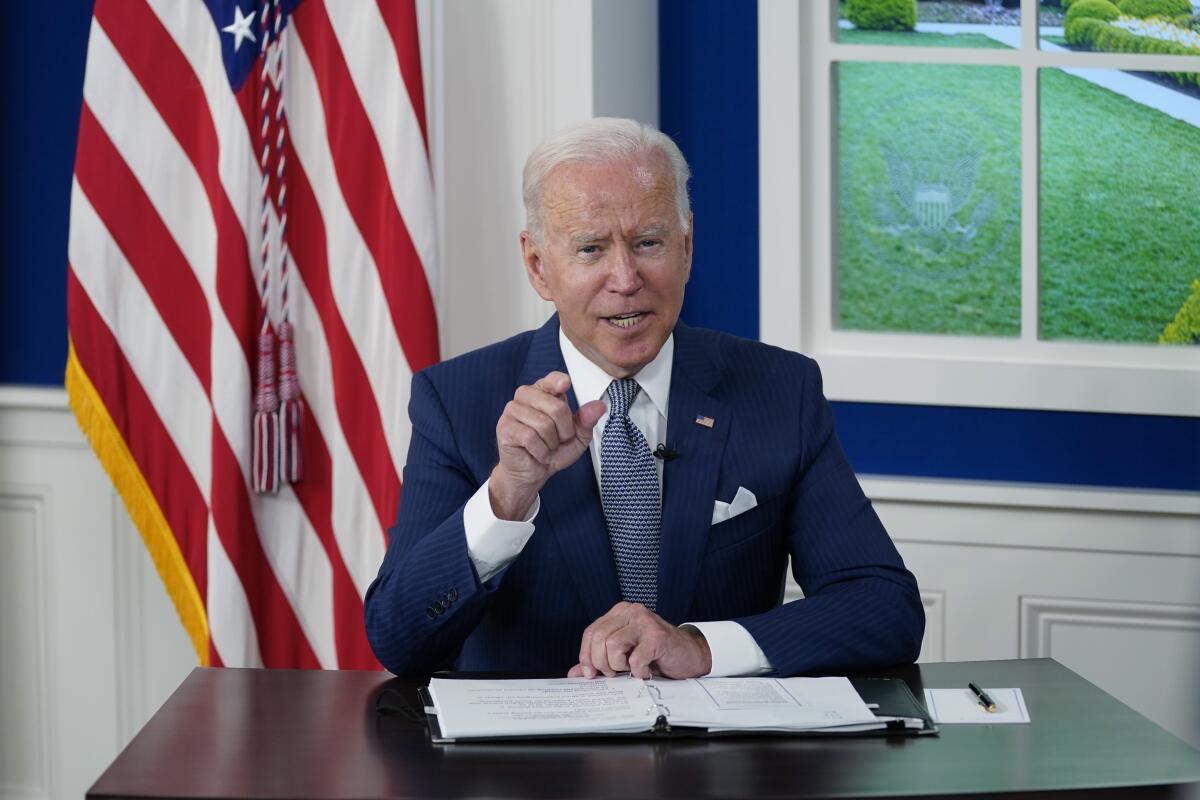
- Share via
WASHINGTON — The United States will double the number of COVID-19 vaccine doses it is donating to the global inoculation effort as the international community struggles to meet its goals for protecting people from the coronavirus.
The larger donation, announced by President Biden on Wednesday, will bring the U.S. commitment to more than 1 billion doses, nearly one-tenth of what experts suggest is needed to safeguard the world’s population. All of the doses are scheduled to be shipped by this time next year.
“This is a global tragedy,” Biden said during a virtual summit on COVID-19 that was convened during the United Nations General Assembly. “And we’re not going to solve this with half measures.”
Biden seeks to reassure allies that the U.S. will not turn its back on global commitments in his first speech at the U.N.
Production challenges, as well as decisions by wealthy nations to vaccinate their own citizens before exporting doses to low-income countries, have created distribution bottlenecks leaving much of the developing world vulnerable to the virus.
Only 286 million doses have been shipped through COVAX, an international partnership designed to supply the impoverished with vaccines. The organization is aiming for 1.2 billion doses by the end of the year, a downgrade from its original goal of 2 billion.
Dr. Seth Berkley, who plays a leading role in COVAX as head of the international vaccine alliance known as Gavi, said during Wednesday’s summit that “ongoing obstacles” have “created delays and slowed progress, such that there are still huge and unacceptable disparities in the global distribution of COVID-19 vaccines.”
Activists have decried the inequality, which Winnie Byanyima, a U.N. official working on public health issues, described as “vaccine apartheid” in a statement on Wednesday.
“We need a new paradigm that rests on sharing the technology and know-how of vaccine manufacturing around the world,” she said. “We need action, not promises.”
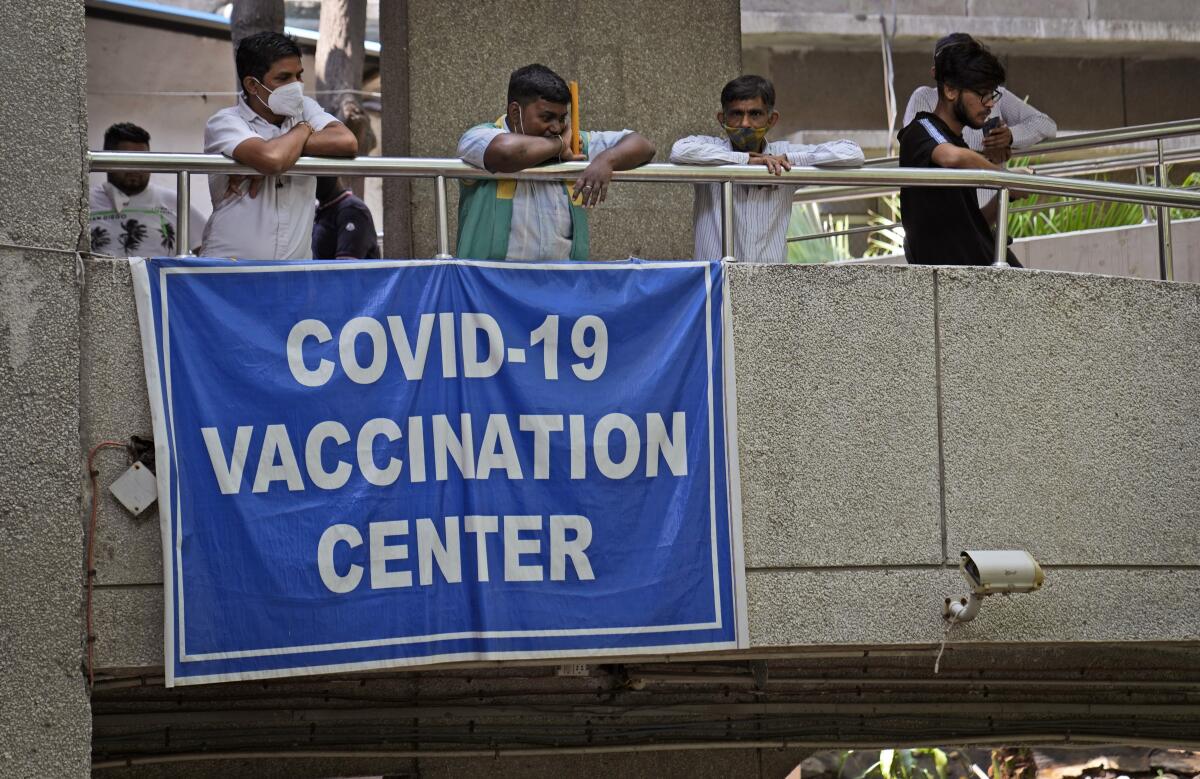
The global inoculation effort is intended to not only save lives but limit opportunities for the coronavirus to mutate into new and more dangerous versions. The highly contagious Delta variant, which was first detected in India, has underscored the danger by ripping through unvaccinated communities and causing another surge in deaths.
“To beat the pandemic here, we need to beat it everywhere,” Biden said.
The president urged other nations to follow the U.S.’ lead and increase their own donations, calling it “an all-hands-on-deck crisis.”
The European Union has committed 500 million doses and pledged to work with the U.S. to address supply chain challenges. India also said recently that it would again export vaccines after halting shipments earlier this year when the country faced a deadly surge in COVID-19 cases.
Even as the coronavirus crisis continues, public health officials are talking about how to prepare for the next pandemic.
“Our world is not fully prepared to prevent, to detect and to respond to future biological threats,” Vice President Kamala Harris said Wednesday.
She announced that the U.S. would contribute $250 million to a new international effort designed to detect and respond to outbreaks, and another $850 million could be made available if Congress approves the proposal. The World Bank is aiming to collect $10 billion total.
While California has not reinstituted sweeping restrictions, the state and many local health departments have taken steps to tackle the Delta variant.
The U.S. has been under pressure to expand its assistance to other countries, especially as administration officials prepare to make booster shots available this year — meaning some Americans will probably receive three doses when many people in poor countries haven’t received one.
U.N. Secretary-General Antonio Guterres said Tuesday that the uneven vaccination distribution is “a moral indictment of the state of our world.” More than 70% of the 5.7 billion vaccine doses administrated globally have gone to just 10 countries, according to the World Health Organization.
Dr. William Parker, a medical ethicist and assistant professor of pulmonary and critical care medicine at the University of Chicago, said shipping doses overseas “would do far more good” in terms of saving lives.
A panel that advises the Food and Drug Administration last week rejected a plan that would have made booster shots of Pfizer-BioNTech’s COVID-19 vaccine available to most Americans, in part because it was unclear how the third dose would substantially contribute to controlling the pandemic. The panel backed giving extra shots to those over the age of 65 or who are immunocompromised.
Giving a healthy adult a booster to “prevent cold, mild or asymptomatic infections at the expense of costing someone in a low-income country their life to me seems unethical,” Parker said.
Officials defended the administration’s plans, saying the country will be donating three doses to other countries for each one administered to a patient in the United States.
In his speech Tuesday to the U.N. — his first as president — Biden described the pandemic as a collective challenge.
“We’re mourning more than 4.5 million people, people of every nation, from every background,” he said. “Each death is an individual heartbreak, but our shared grief is a poignant reminder that our collective future will hinge on our ability to recognize our common humanity and to act together.”
Dr. Walter A. Orenstein, associate director of the Emory Vaccine Center, said producing enough vaccines will be challenging.
“Manufacturing capacity has generally been adequate for the vaccines we routinely use,” Orenstein said, because not every person in the world has needed to be inoculated against every disease. But now, the whole world needs this vaccine, and manufacturing capacity is not able to meet this demand, he said.
“It’s not like overnight you can just rev up and vaccinate the entire world,” he said. The industry has never had to produce “anywhere near the number of doses we need” to combat COVID-19, he said.
Biden said his administration is working with other countries to increase their own manufacturing capacity. He said plans are underway to produce 1 billion doses in India and another 500 million doses in South Africa next year.
Times staff writers Tracy Wilkinson and Noah Bierman contributed to this report from Washington.
More to Read
Get the L.A. Times Politics newsletter
Deeply reported insights into legislation, politics and policy from Sacramento, Washington and beyond. In your inbox three times per week.
You may occasionally receive promotional content from the Los Angeles Times.
